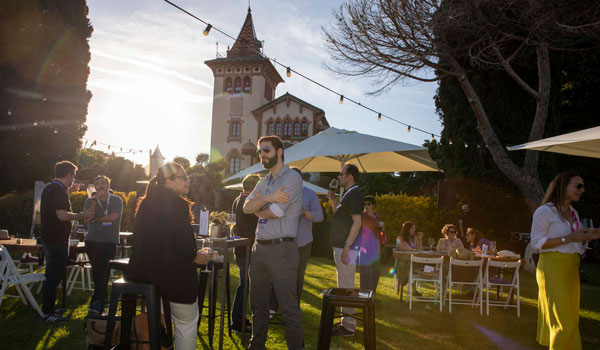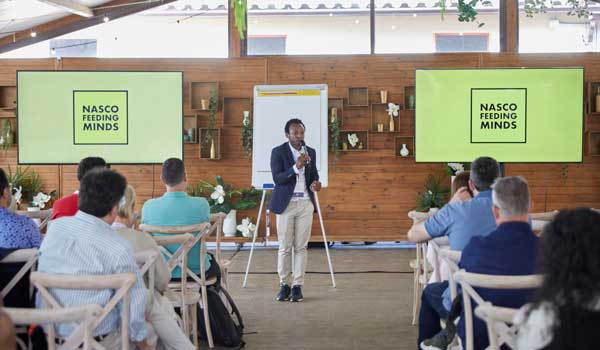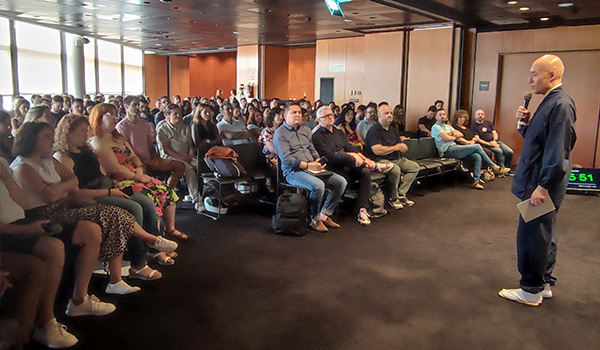Time and again, we have heard that the future of the world and the origin of significant change lie in investing in the education of people1 and in expanding their consciousness. This consciousness (understood as the ability to both understand the world from different perspectives and increase the mental models according to which decisions are made) is formed during our lives through experiences that lead to new learning.
As we discussed in the preceding article, the development and a higher level of consciousness of people not only contribute to individual growth, they also play an essential role in promoting a positive impact in society as a whole.
Below we’ll explain how we arrived at these concepts at Voxel.
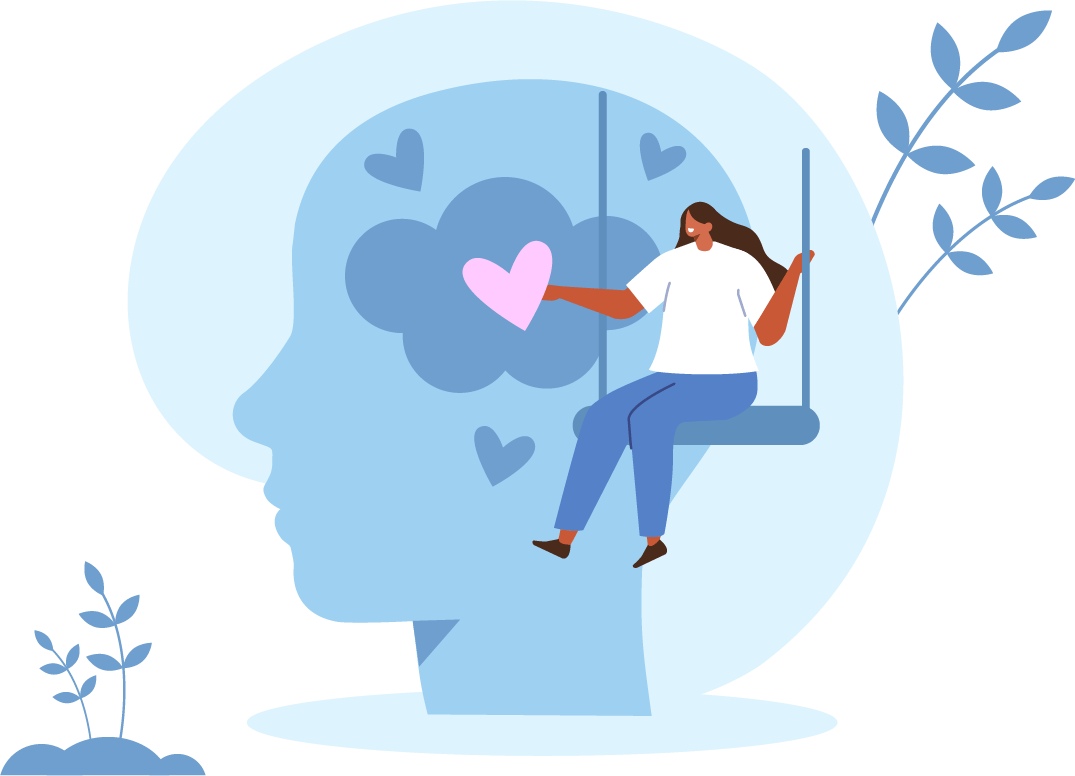
The development of people and their consciousness as the fundamental basis
Voxel’s history is formed by successive events of discovery and learning (very similar to what happens to a person, considering that an organization is nothing more than a group of connected individuals). Voxel’s founders and the members of its Management Committee have had diverse and highly intense experiences (those that make you reflect upon your principles and values), a fact that has led them to attain an increasingly higher level of consciousness. This is a path, and therefore the “organization” is continuously evolving.
![]() Being a profitable company is not only compatible with being a place where people are also happy, it is much better. In fact, the professional part cannot be separated from the human part: they are indivisible.
Being a profitable company is not only compatible with being a place where people are also happy, it is much better. In fact, the professional part cannot be separated from the human part: they are indivisible.
One of these experiences came about during the pandemic (a time of crisis that turns into an investment opportunity for someone who has the financial ability to take advantage of it), when Voxel received several investment proposals, one of which – because it was such a high amount – would have allowed its founders to comfortably retire. Yet they reached the conclusion that they didn’t want to take on financial liabilities with third parties (due to the risk of changing how decisions were made by the organization). This consequently led to a moment of in-depth reflection in which they realized that they were happy with the essence of the organization, where they had grown and developed.

That feeling was also shared by their employees: Voxel had been recognized as a “Great Place to Work” for two consecutive years, thereby bolstering the concept that being a profitable organization and at the same time having people feel comfortable in it, is not only compatible but much better, as shown by several studies2. In fact, the professional part cannot be separated from the human part: they are indivisible. It makes no sense to tell someone that their problems “end at the company’s door” because, in the end, there will be both short- and long-term consequences (not only for that person, but also for the company!).
Part of that reflection was that they weren’t going to “work”. The concept of work was too transactional (a person receives a wage in exchange for their time and effort), which wasn’t very much in line with the intrinsic motivators of the people (autonomy, learning and purpose)3 or with the most extrinsic ones (recognition and social connection). So we had to go beyond this: the previous purpose of wanting to inspire other companies to “create a healthy business fabric” and to be the “Best Place to Work” had to change towards creating organizations where their employees could find alignment with a personal purpose.
![]() Everyone has the right to be happy, and personal development is one of the key factors.
Everyone has the right to be happy, and personal development is one of the key factors.
Key ideas began to take solid shape, such as everyone has the right to be happy, and one of the factors to reaching that happiness consisted in continuing to promote the development of individuals beyond the professional sphere, especially at the personal and internal level. This second level, which begins with self-knowledge (discovery of one’s own strengths, weaknesses, emotions, needs, motivations, etc.), allows evolving and making better externally-related decisions, as well as developing more empathy towards others in order to improve relationships.
The founders of Voxel and its Management Committee therefore decided that they wanted to go beyond merely ensuring that their employees were happier, and they established the higher purpose of inspiring other companies to also be places where people could develop (“Great Places to Grow”) and be happier.
The following diagram shows how expanding the consciousness and caring for the happiness of individuals at companies can likewise promote a more conscious and happier society.
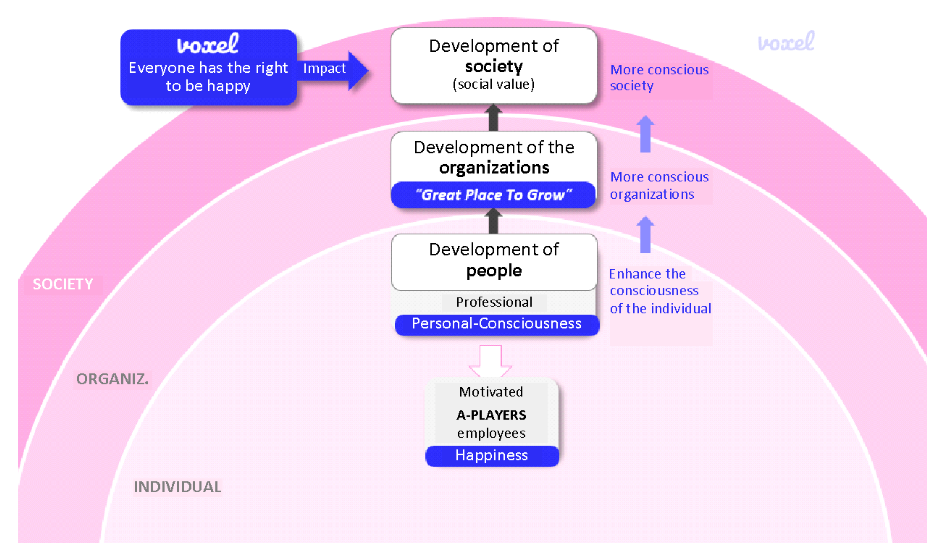
The following diagram brings together all the concepts and the two virtuous circles (the most “instrumental” and that of a higher purpose).
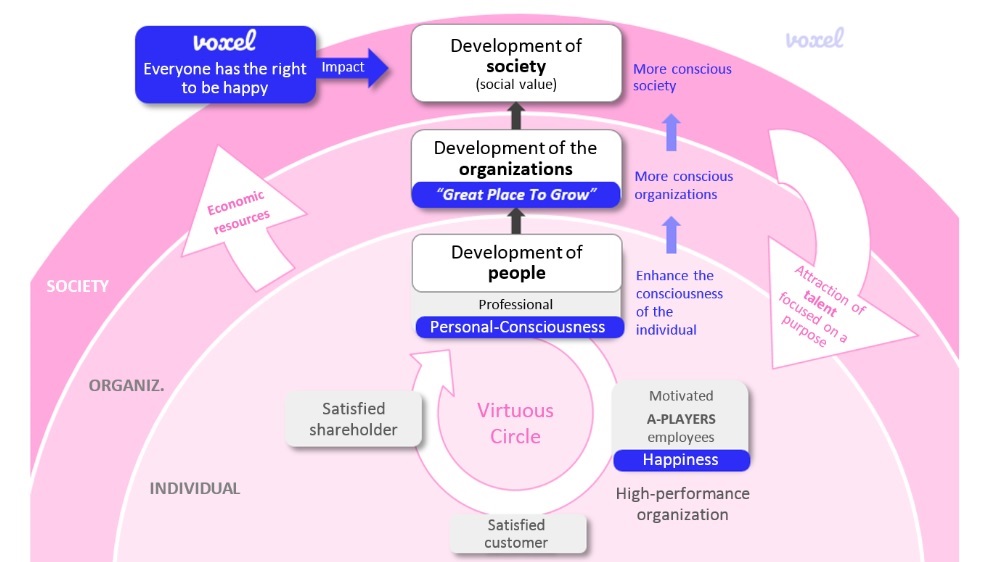
At Voxel, we haven’t discovered anything really new, but we are dedicating the effort to being more consistent and putting it into practice (even under conditions of major economic stress, such as during the pandemic4 ). We strive to act honestly, knowing that we still have a long road ahead and knowing that we have to keep learning and exploring in many areas (like we’ve done up to now) and with the genuine purpose of continuing to develop our organization and inspire others, because achieving that purpose will ultimately have an impact on a healthier business fabric and a better society.

1Nelson Mandela – “La educación es el arma más poderosa que puedes usar para cambiar el mundo”.
2Warwick University – Happiness and Productivity
3Daniel Pink – Drive
4Josep Mº Coll, Jordi del Bas (EADA) – Del liderazgo por valores al impacto holístico – Cómo pueden hacer las empresas un mundo más feliz.









